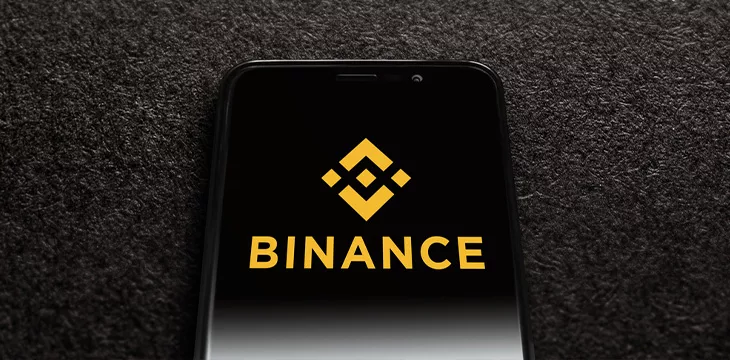|
Getting your Trinity Audio player ready...
|
As the naira hits record lows against the dollar, the Nigerian government has targeted
Binance and other digital asset trading platforms over allegations of manipulating the foreign exchange rates.
The naira has been depreciating drastically in recent months, hitting a record low at N1,607 ($1) per dollar and approaching N2,000 ($1.25) on the parallel market. Since the Bola Tinubu administration took over, it has employed short-term measures to curb the decline, including ordering banks to sell excess dollar liquidity, but they have achieved little.
Most recently, the focus has been on the digital asset industry. As CoinGeek reported, Bureau De Change (BDC) operators in Abuja shut down three weeks ago and blamed Binance and its peers for setting lower rates.
The precedent they set seems to have stuck, and now, the government is investigating the role of digital currency platforms in forex manipulation.
One government official who spoke to the local publication Premium Times described digital currency activities as a “sophisticated heist against the Nigerian economy.”
The official claimed that it all stems from the ability to open multiple buy and sell windows through which they speculate on the price of the U.S. dollar-based stablecoins. These speculators manipulate the price of the USD and then scoop them up on the low in other open buy windows.
“This, therefore, gives the dollar a fake value against the naira, which then sets a frenzy and mislead the market. This fake price is then often quoted by BDCs who raise their prices to meet the Binance benchmark even without any corresponding demand in that segment,” the official said.
Band-aid solution
The Central Bank of Nigeria (CBN) has come under the spotlight for its monetary policies amid a crumbling naira. Governor Olayemi Cardoso has blamed just about anyone for the currency struggles, including Nigerians, for their “insatiable appetite for the dollar and foreign goods.”
This ‘blame-everyone-else’ attitude has seeped through to other executives at the central bank. One high-ranking official told a local outlet that the fault is on Binance.
“Through manipulative rent-seeking, Binance’s global reach results in higher USD to NGN exchange rates often being used as a benchmark for currency trading, misleadingly devaluing the Naira in global markets,” he stated.
Bayo Onanuga, the Special Adviser to the President on Information and Strategy, also blames digital assets for the naira’s woes.
“The EFCC and the CBN should move against these platforms trying to manipulate our national currency to Ground Zero. Crypto should be banned in our country, or else this bleeding of our currency will continue unabated,” he stated.
The Naira-Dollar manipulators
I chanced on an X post Tuesday night by one Brother Bernard @Mikael C Bernard who railed against what he called the order of the EFCC, NSA on Finance to set a cap on traders selling USD tokens for Naira equivalent.
He disclosed that token sellers… pic.twitter.com/c9YBjawJMz
— Bayo Onanuga (@aonanuga1956) February 21, 2024
Last week, thousands of Nigerians took to social media to reveal that they had lost access to the web versions of popular exchanges like Binance, Kraken, and Coinbase (NASDAQ: COIN).
Binance acknowledged that its website has been impacted.
“We are aware that some users are experiencing issues accessing binance.com, along with other platforms in the industry. Only users attempting to access the website are impacted, although the App is currently available. Importantly, all user funds are secure and accounts can still be accessed,” the exchange told its Nigerian users.
Coinbase maintains that its services are still available in Nigeria, but it pledged to “continue to investigate these reports.”
As the government aims at digital currency exchanges, leaders in the financial services industry have dismissed the antics as a band-aid solution. Experts say Nigeria’s challenge lies in its dwindling trade balance, decreased profits from its crude oil, and gross mismanagement of its economy.
The latest blow to Nigeria’s digital asset sector comes barely two months since the CBN lifted a three-year ban that had kept the industry from accessing financial services.
Follow CoinGeek’s Crypto Crime Cartel series, which delves into the stream of groups—from BitMEX to Binance, Bitcoin.com, Blockstream, ShapeShift, Coinbase, Ripple, Ethereum,
FTX and Tether—who have co-opted the digital asset revolution and turned the industry into a minefield for naïve (and even experienced) players in the market.

 07-13-2025
07-13-2025 





